
The Free Press

If I’ve learned anything from my political evolution over the past few years—going from a staunch liberal to a committed waffler—it’s this: If you want to be a party-line Democrat or Republican, it’s easy enough. You just have to isolate yourself from opposing viewpoints.
I had a much stronger political identity before I knew how much I didn’t know. Then I became a reporter. I went out into the country NPR told me about. And I found that, well, things are a little more complicated out there.
My latest foray into America as it actually exists is our new special election series: Swing State Debates.
Each week, I’ll host a conversation between a diverse assortment of Americans on some of the most contentious issues of the day, from foreign policy to race relations to the economy. These debates are not exactly kumbaya. But if you are a devoted partisan, you’ll be disappointed to learn that the participants don’t divide into the neat camps you might think exist. Nor is it always obvious—at least to me—which side of each issue has the moral upper hand. What you will find is a passionate, knowledgeable, and sometimes ambivalent cast of characters. In other words, they’re just like America.
Tune in weekly—a new episode will drop every Tuesday from now until Election Day—to find out whether the moderating influence of one politically ambivalent journalist can accomplish the impossible: an easing of tensions between two opposing tribes. (Spoiler alert: Results varied wildly.)
Our first episode, which you can watch above, will likely raise hackles for its location alone: Florida. I can already hear some subscribers complain “Florida’s not a swing state!” as they scroll to the comments section and roll up their sleeves. But if a new poll is right, the presidential race in Florida is tighter than you might imagine. So let’s call it a swing-ish state.
But, more to the point, Florida has been the site for one of the nation’s most antagonistic culture wars: the battle over what we teach our children—about American history, sexual identity, gender, and race. Under Governor Ron DeSantis, a series of recent laws seek to dismantle progressives’ perceived stranglehold on American pedagogy. The most controversial of these was the Parental Rights in Education Act (widely reported as the “Don’t Say Gay” bill) as well as a law that enables parents to force school libraries to remove books they feel are “inappropriate.”
Florida is also where Tiffany Justice, co-founder of parent advocacy group Moms for Liberty, lives. She was one of the participants in our debut debate—a conversation featuring teachers and parents, Democrats and Republicans on every side of this issue.
So off we go to the swing-ish state of Florida to sort out American education! (Next week: Arizona, where I’ll attempt to bridge the divide between border hawks and Dreamers seeking citizenship.)
This series is presented with support from the David Merage Foundation and Evoke Media. For more information, please visit weareevokemedia.com.
As well as hosting Swing State Debates, Ben Kawaller is the host of The Free Press series Ben Meets America! To learn more about that series, click here.
And to support our work, become a Free Press subscriber today:


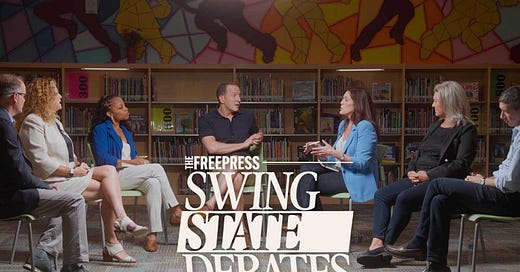


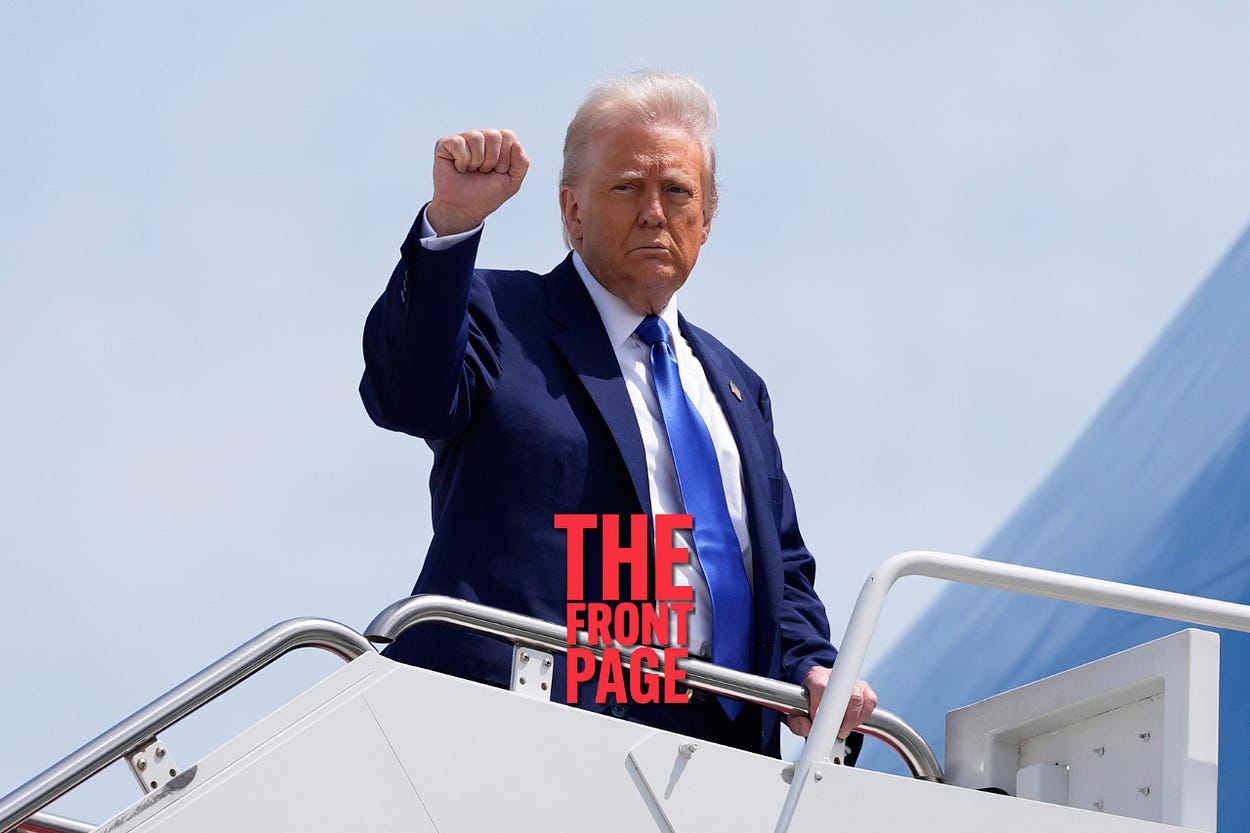

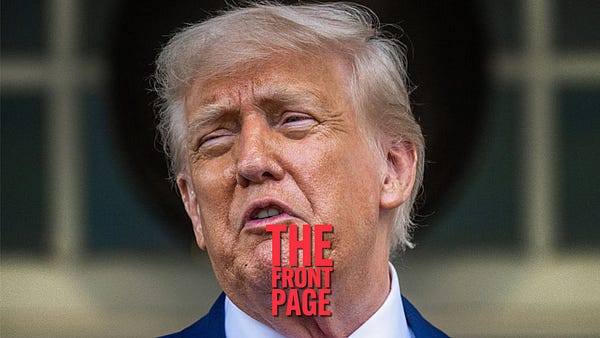


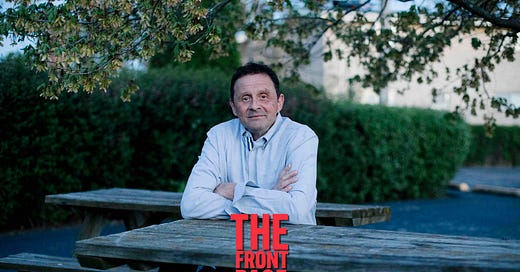


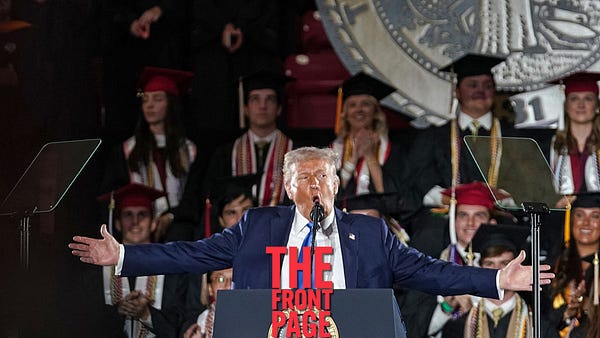

Your interview with Douglas Murray one or two days ago was OUTSTANDING. I have so much respect for him. I am astounded with the transparent disdain our current administration has for Israel. I am fearful about the rise in antisemitism in the world and especially in this country. Israel has every right to defend itself against pure evil with our total support. I believe the lack of support is to gain the votes of antisemites in this country which is absurd and dangerous. Also hoping for the votes from Anti Israel Jewish Americans in this country which I find unconscionable. I pray for the future of our country, especially for our children and grandchildren.
I'm about 15 minutes in and I'm not sure I will be able to finish. The school board member from Flagler County (which is just north of where I grew up) is absolutely insufferable and describes, for me at least, the adjective "knee jerk" in that near the very beginning she raised Democrats' very favorite talking point: Not enough funding for education and that the Republicans have ruined everything. I remember not terribly long ago a study published that illustrated the vast funding differences between U.S. schools and European schools, which clearly illustrated that Americans shovel a ton of $$ at school systems for rather lackluster results. And they keep asking for more! In the woulda/shoulda/coulda department, I neglected to save the source for that study - so my bad, I don't have a statistical leg to stand on. But then shortly thereafter, the much maligned Tiffany Justice made an absolutely commonsense observation that resonated with me: She noted that "increase school funding" rarely trickles down to the classroom and instead is gobbled up by administrative bloat - which I can tell you from personal knowledge is absolutely true! How do I know this? My sis is an administrative assistant in one of those large Florida districts. People don't know this but because school systems in Florida are administered on the county level, they tend to be massive bureaucracies. The schools themselves tend to be enormous: My own Florida high school class had almost 1,000 people. But I digress because my point was about my sister's job - she supports a boatload of highly paid specialists, who have risen up through the ranks to the point where they don't spend time in actual classrooms anymore. There's a few people like my sister, and a whole bunch of "them," people who (it seemed to me) spent their entire work lives attending meetings and giving PowerPoints. Many of those meetings were in other parts of the state, so there was a lot of travel expense involved in their "sharing expertise." The PowerPoints that my sister was in charge of assembling and disseminating were enormous. This particular district has had multiple rounds of layoffs in recent decades, and it always seems to me (yes, I am a distant observer!) that the poor teachers... where "the rubber meets the road" ... always took it on the chin in those cuts. Nobody at this bloated administrative level ever lost his/her job, which was also my experience in corporate America where upper management types always had each other's backs. Consider that this is just one school system in one state, then multiply this syndrome across America and you have a prescription for failure led by babbling, over-credentialed bureaucrats.